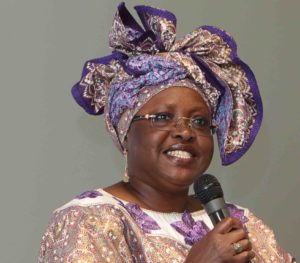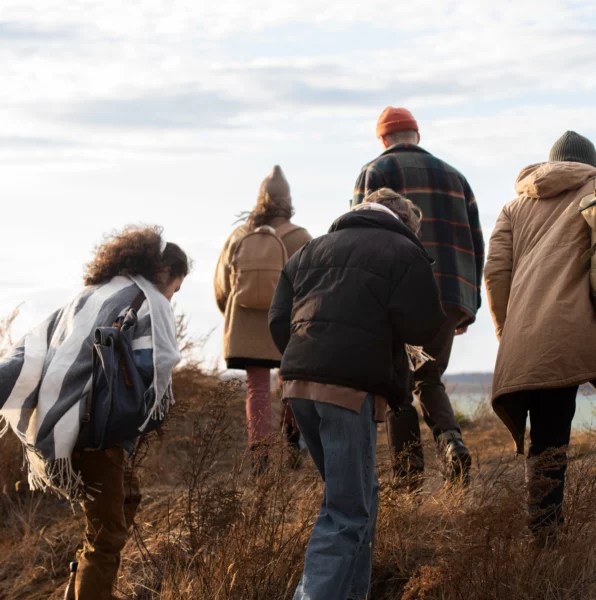The international science communication landscape is still shaped by European centricity and notions of superiority, says the science communicator Elizabeth Rasekoala. In the interview she talks about the normativity of ‘white innocence’, the emancipative ideas of Afrocentricity and the need to recognize different forms of knowledge.
“The hegemony of the white, Western paradigm is so glaringly obvious”
You have been involved for decades in sociocultural inclusion and the decolonization of science communication. To what extent is this field still dominated by a white and Western paradigm, as you wrote in a paper for JCOM?

In that paper we are elaborating the very clear global north-south divide in terms of how science communication is globally represented and amplified and, in a sense, glorified. That arrogant northern glorification is increasingly being contested and challenged. Because we are saying: It is not just about you. We are also doing it in the Global South. We also have a valid globalized world view to bring to the table. The dominance of the white and Western paradigm is so glaringly obvious that you would have to be locked into some sort of parallel universe in order not to see it. We say: enough is enough. That is what is driving the decolonizing agenda. But for people like myself who have been dealing with these challenges for decades, decolonization is just a new way of phrasing what has been a long-standing issue.
How does the Western and white paradigm manifest itself?
There are quite a few aspects but here, I will focus on three critical exemplars. The first one is what the Latin American scholar Anibal Quijano defined as the ‘coloniality of knowledge’. The profound legacy of colonialism was basically to embed and to entrench this coloniality of knowledge in institutional frameworks across the global south. The knowledge that the local people had and with which they survived and thrived for centuries before Europeans came to those shores was basically nullified and refracted through that colonial experience of Eurocentric knowledge management.
The second example is embedded in a phrase conceptualized by Edward Said. What he called ‘racial grammar’ is used to define and to preserve the superiority of so-called western knowledge and communication against other parts of the world. Racial grammar frames the way in which Western-derived science communication practices have been privileged at the expense of those from other cultures, serving to make ‘invisible’ the added-value dimensions of such contributions to a globally coherent and inclusive framework for the field.
What is the third example?
Unfortunately, ‘coloniality of knowledge’ and ‘racial grammar’ may not be the kind of scholarly literature that many people in science communication are familiar with. And this is part of the problem. How widely do communicators read beyond the natural sciences? Natural scientists and social scientists need to work together and co-design, co-research and co-deliver transformative science communication. Then we will be better able to identify the locations where Eurocentric hegemony sits in science communication.
How is it possible to get Western science communicators to reflect and question their white innocence?
That question takes me to the book on race and sociocultural inclusion in science communication that I am currently working on and which is going to be published in July. It brings together different perspectives on innovation, decolonisation and transformation in science communication from researchers and practitioners around the world. What we are saying in this unique book collection is that there is a shared burden between science communicators in the Global North and the Global South to address. This isn’t about finger pointing one way. We also need to talk about how we ourselves in the Global South need to decolonize ourselves because many of us have been educated and have thus, been assimilated through these colonized lenses. We don’t even realize the ‘blind spots’ that we carry with us.
You are advocating the concept of Afrocentricity. What does it mean?
Afrocentricity speaks directly to that call from Bob Marley to “emancipate yourself from mental slavery”. The concept was defined by the African-American Scholar Molefi Kete Asante, who was putting out a call to Africans and people of African descent to say: We will stop allowing the Global North to undermine our agency and we will put ourselves front and center in terms of defining our own development, our own systems of knowledge, our own systems of science and science communication. This is one of the direct ways in which we can really build that global south-south solidarity movement working together and supporting each other. And we always have to remember that this is the same challenge for people in Latin America and in Asia. Afrocentricity therefore, has a high-level relevance for different communities in the Global South.
That’s the effort which is being made in the Global South. But what can be done by science communicators from the Global North?
One of the easiest ways is to start with what you have, and start with where you are. Part of what we need to challenge is that sense of wishing to live in a ‘virtual-make believe world’ where there is no racial diversity or multiculturalism. There is no European country where you won’t find people of color, in substantial numbers, given historical and contemporary migration trajectories. So, what we need to challenge colleagues in the Global North about is not even about engaging with us here on the African continent. We need to start the dialogue by asking: Where is your engagement with that African or Asian diaspora that is right there on your doorstep? That is the lowest hanging fruit. But that basic effort is hardly being made.
When did you realize that there is a lot to do in science communication when it comes to equality and inclusion?
So over time you did not notice any improvements?
We are still disappointingly at the beginning of a long journey. When you go to science centers and museums in the European space they are still overwhelmingly white. When I lived in the United Kingdom I was always struck by the fact that most science centers and museums are in so-called inner-city areas. That is one of these euphemisms for defining areas where poor people and certain people of color live. For example, in Manchester you find a science museum right there on the doorstep of a huge black community. And guess what, you would never see black people in that science center. There was no person of color employed in that science center. How could we explain that?
Last year I was invited as a keynote speaker by a science communication network in Portugal, to their annual congress. For three days everybody was so comfortable with the fact that I was the only black person in the room. This, in 2022. This, in Portugal. And nobody got shaken by that until I raised that ‘elephant in the room’ in my keynote presentation. In the question and answer session afterwards a female academic from a Portuguese university jumped up and said defensively: “Many of the post-graduate students in my university are from African countries – Mozambique, Angola and so on”. I responded to ask, “So, why are they not here?” That question never occurred to her before. In Universities across Europe we have scholars and researchers from every corner of the global south. But you don’t see them in the mainstream of science communication – I should know, as I was once one of these.
You are the President of African Gong – The Pan-African Network for the Popularization of Science & Technology and Science Communication. What are its goals?
Basically, African Gong was an idea which came up at a conference of the Global Network on Science Communication-PCST, that was held in Salvador, Bahia, in Brazil, in 2014. A few of us African colleagues realized that the African region was the only one which did not have a pan-regional network for science communicators. We saw the excellent work our colleagues in Latin America & the Caribbean (RedPOP network) and across the Asia-Pacific (ASPAC network) regions had achieved. So we started African Gong to support each other and to help each other grow the footprint of science communication on the continent. We made sure that each of the African regions was represented in the leadership as well as in the membership, because we have very different ecosystems that enable or disable science communication. We didn’t want to fall into the trap of “one size fits all”. It’s been a very challenging journey growing the network because the gaps between policy imperatives, resources and capacity building for young and emerging African researchers is huge. There is hardly any African higher education institution that is providing training and capacity building for African researchers and scientists to acquire and practice decolonised science communication skills.
You said that Eurocentric hegemony is still a notion of the superiority of Western knowledge and approaches in science communication. What does that mean for the acknowledgment of Indigenous knowledge?
The role of Indigenous knowledge is very important in terms of how we overcome Eurocentric hegemony in science communication all across the Global South. In a sense it pains me that we even have to use the word ‘Indigenous’. Because that notification in itself speaks to Eurocentric hegemony, but we haven’t been able to come up with another term. What we should be talking about is moving towards a globally inclusive scenario where all knowledge is recognised and valued in what I call ‘context-situated validation and recognition’. Because you see Indigenous knowledge in every part of the globe. If that knowledge wasn’t effective and efficacious, then Europeans would have come to Latin America, Asia and Africa and not find a single human being. But these continents were full of people. We have been there for centuries, we have lived, and we have thrived. We couldn’t have done these without some systemic measure of scientific and technological knowledge and innovation.
Can you explain what context-situated knowledge means? 
Let me give you an example from my personal life: On the African continent Indigenous knowledge is often codified in proverbs.When I as a nine year-old girl asked my mother to get me a pair of new fancy shoes, she just asked me: “Do you have shoes on your feet, my child?” “Yes, Mum.” – I replied, “Are they torn, are they broken?” “No, Mum” – I again replied. She then asked me: “So, what does a vulture want with a comb?” I thought this through, and then said: “Sorry Mum, I don’t need a new pair of new shoes.” When I told that story to a colleague of mine in England, she said I have been very lucky because her mother would have given her a one-hour lecture about the cost of living and the economic crises. But then I said to her: “Would you have understood that proverb as a child, after all you didn’t understand it now until I explained it to you?” She had never even seen a vulture. That is what I am framing as context-situated knowledge. So, which is superior? The vulture proverb or the lecture? Neither is, as each is appropriately and equally engendered by the socio-cultural norms of its contexts and knowledge paradigms. That is what needs to be acknowledged in terms of how we recognize, value and respect knowledge from every part of the world.






